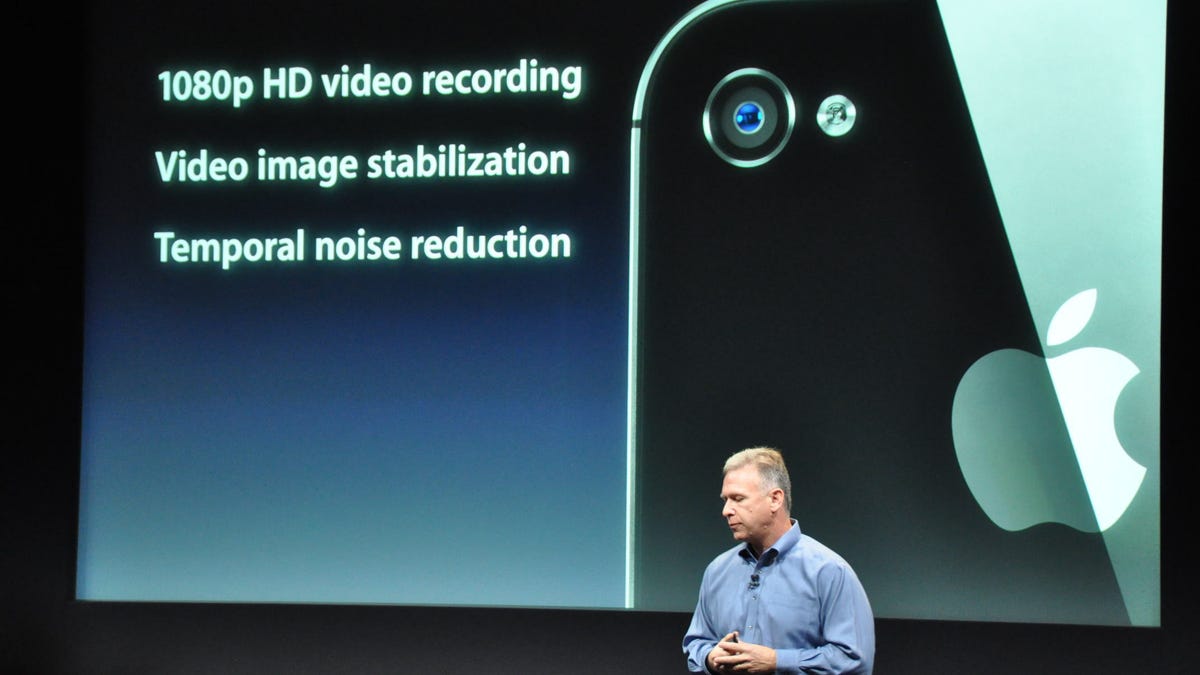The iPhone 4S is not a camera killer, even if it has a killer camera
Apple has stepped up the photo skills of the iPhone in its latest iteration, but the only camera you'll ever want? I don't think so.

While there were mixed reactions to Apple's announcement of the iPhone 4S--mostly for it not being an iPhone 5--I think we can agree that for the most part, the enhancements to the camera software and hardware are a step forward. But even if it had the best camera phone on the planet, it's still lacking capabilities and the ubiquity necessary to seriously displace a chunk of the camera and camcorder biz.
To recap what's new, the phone integrates an 8-megapixel backside-illuminated sensor. That was an inevitable next step; a BSI sensor delivers better images in low light as well as improved performance for stills and video. Its new f2.4 lens also comes in aid of low-light quality, and Apple throws in another lens element to increase the sharpness of the tiny lens. The company is also touting its "advanced hybrid infrared filter," which kind of baffles me; it's a bizarre feature to highlight in your marketing materials, and there's no information (yet) about what's so advanced or hybrid about it. I'm guessing it's just a typical IR filter (all non-IR cameras use them) with better light transmission qualities.
The dual-core A5 processor should definitely help performance along as well, and it's necessary given the larger images and 1080/30p videos the phone will have to process, as well as the new noise-reduction and image-stabilization algorithms. It will also gain some usability improvements with iOS 5, including face detection, autoexposure, and autofocus lock, plus post-processing tools like cropping.
Related stories
• Apple's iPhone event (live blog)
• Apple unveils iPhone 4S
• iPhone 4S First Take
• Apple's iPod lineup (2011)
• Full coverage: Apple's iPhone event
So even if the iPhone 4S seems poised to be one of the better camera phones on the market, there are still a lot of caveats that keep it from being a camera (or camcorder) killer. Most notably, no zoom lens. Most camera and camcorder buyers these days want not only a zoom lens, but the longest zoom lens they can find in a camera size they'll carry.
Second, it's possible the photo quality that's attracted a lot of people to previous models may actually not stand up in the iPhone 4S. BSI sensors are great for shooting in low light, but their photo quality in good light takes a hit; it's not bad, but it's not great. But given that a camera phone competes with other devices with BSI sensors, that may be a moot point.
And while Apple claims what sounds like point-and-shoot level performance--0.5-second shot-to-shot times and about 1-second startup--remember that a lot of people are upgrading out of point and shoots because they're unhappy with the performance. To me, an iPhone 4S sounds like a gateway drug for a better camera, not the be-all and end-all of cameras. The camera is a good reason to upgrade your existing iPhone or perhaps switch from another brand, but I don't know that it's a reason to toss your camera.

